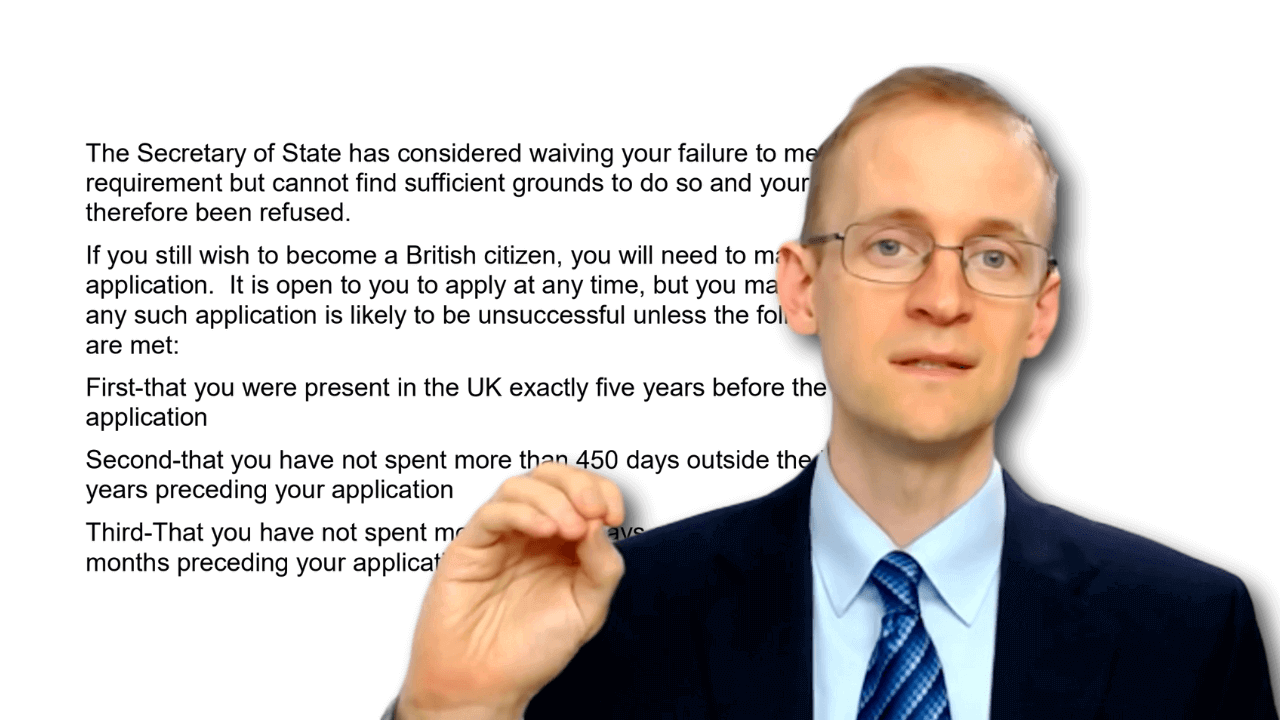In this video, I explain how to avoid being refused naturalisation on the grounds of absences. I also explore scenarios when the Home Office may disregard absences.
People often consult me for the first time after they have received a refusal on an application to naturalise as a British citizen. This is what the refusal looks like:
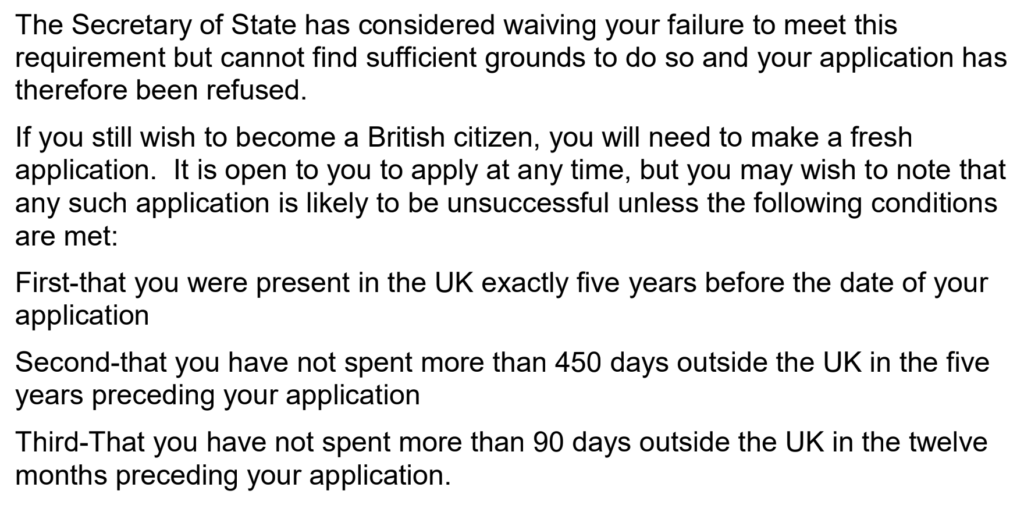
The most common reason for being refused when applying to naturalise as a British citizen is absences.
The residence requirements include that:
You must not have had more than 450 days outside the UK in the 5-year period before making the application
AND
You must not have had more than 90 days outside the UK in the 12-month period before making the application
BUT there is discretion to disregard absences in excess of the limits.
These are divided into the absences over the whole 5 years, and absences over the last year.
Let’s start with absences over the whole 5 years:
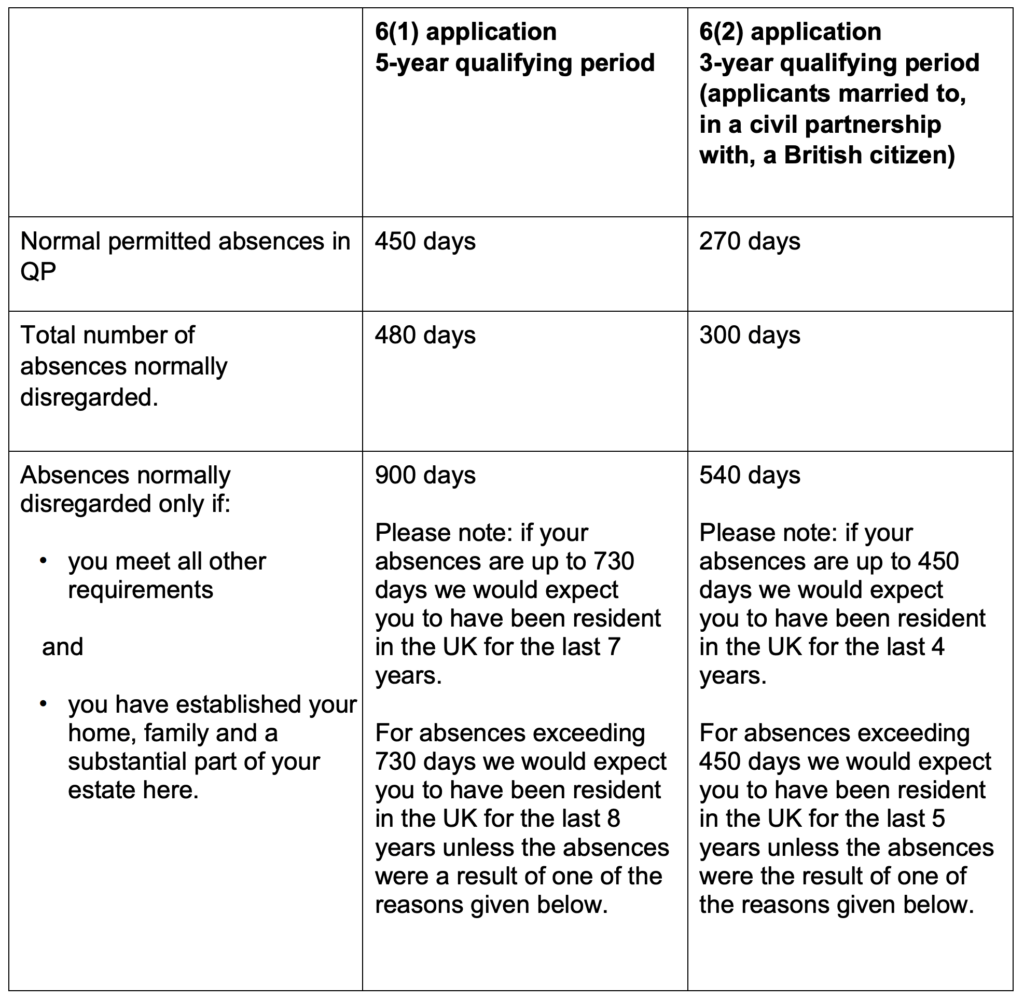
The Home Office says:
“Only very rarely would we disregard absences in excess of 900 days […]. If your absences are more than this limit your application is likely to fail and your fee will not be fully refunded.”
For absences exceeding 730 days the Home Office would expect you to have been resident in the UK for the last 8 years. Alternatively, you can show that the absence was:
An unavoidable consequence of the nature of your work. For example, if you are someone working for a UK based business which requires frequent travel abroad;
Exceptional or compelling reasons of an occupational or compassionate nature. With my clients I have relied on things like family bereavements, and illnesses while abroad which prevented travel. But COVID can potentially be relied on as a ground here.
What about days outside the UK in the 12-month period before making the application?
AGAIN there is discretion to disregard absences in excess of the limits:
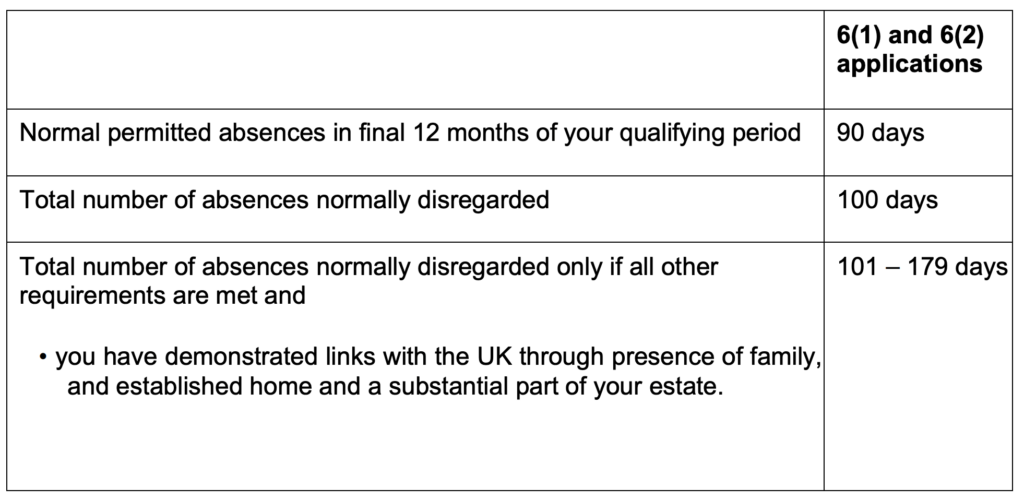
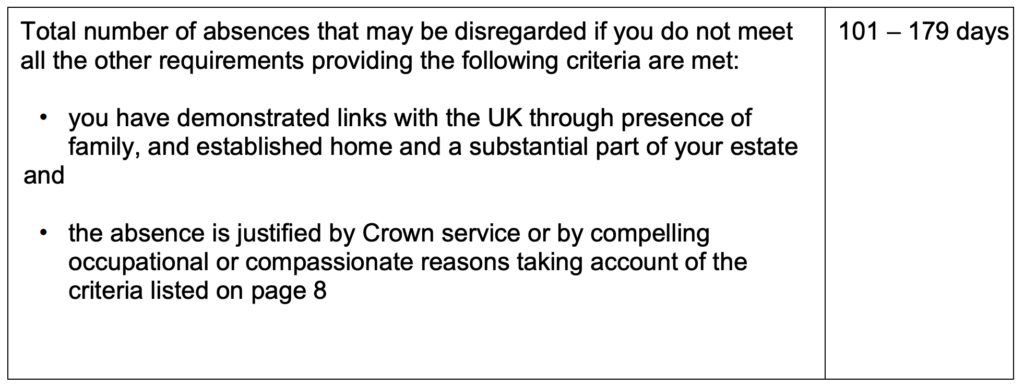
The Home Office says:
“Only in the most exceptional circumstances would total absences exceeding 180 days in the final 12 months of the qualifying period be disregarded if all other requirements were not met.”

